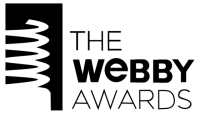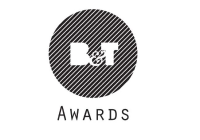Why Meta Tags Matter for SEO

Contents
- Why Are Meta Tags for SEO Important?
- 6 Different Types of Meta Tags That Improve SEO
- Meta Tags Best Practices
pets describing a page’s content; meta tags do not appear on the page itself but only in the page’s source code. Meta tags are minor content descriptors that help search engines understand what a web page is about.
The only difference between visible tags (say, on a blog post) and invisible tags is location: meta tags only exist in HTML, usually at the “head” of the page, and are thus only visible to search engines (and people who know where to look). The “meta” stands for “metadata,” which is the data provided by these tags – data about the data on your page.
Why Are Meta Tags for SEO Important?

On a Search Engine Results Page, meta tags are the first impression someone has of your page. A good meta description will entice users to click and visit your site. They ensure that search engines understand what your content is about so that they can display the website with relevant results.
Consider this scenario: You’re browsing a store shelf and come across a product with an outdated and unappealing label. It needs to include crucial information, such as what the product is made of. Then you notice a label on another new and exciting product, with a list of visible ingredients. You’ll buy the product with the best label. The same is true for meta tags; if your meta description is poor, no one will click on your content.
Meta descriptions are frequently the primary information determining which results users click on, so using high-quality meta tags on your web pages is critical.
6 Different Types of Meta Tags That Improve SEO
Meta Title Tag

Figure 1. Meta Title, Author: Seobility – License: CC BY-SA 4.0
A meta title tag is an HTML element that describes your website’s content to search engines and users. Title tags are essential for website SEO because they give users their first impression of the website in SERPs.
The meta title is one of the factors that influence the CTR of your website (click-through rate). Users will click on your website in the SERP if you have an appealing title.
When using meta titles and tags, ensure they are added to the website’s header. A title tag should be at most 55 to 60 characters and 680 pixels in length.
Meta Description Tag

Figure 2. Meta Description – Author: Seobility – License: CC BY-SA 4.0
The meta description tag is an HTML element that summarises the website’s content. It informs users about the content on the website. As a result, users can understand how the content can assist them in resolving their issues. It also has an impact on the website’s click-through rate.
The Meta description tag, like the Meta title, should be added to the website’s header. A meta description should not exceed 155 to 165 characters and 920 pixels.
When writing meta descriptions, include your targeted keywords to increase your chances of ranking in SERPs.
Canonical Tag

Figure 3. Canonical Tag, Author: Seobility – License: CC BY-SA 4.0
Google needs help identifying the original version of your webpage due to multiple versions. Because your website is open to all versions, this creates a problem with duplicate content.
To tell Google which is the original version of your website, a canonical Html tag with the attribute “rel=canonical” is used. Canonical tags inform Google about the original version of your website, resulting in the duplicate content issue being ignored.
Alternative text (Alt) Tag

Figure 4. ALT Attribute – Author: Seobility – License: CC BY-SA 4.0
Search engines cannot read visual content, whether in the form of an image or a video. To clearly understand the visual content, alternative text or alt tag is used.
Alternative text is an HTML attribute used in the website’s image element. Alt tags inform search engines about the image’s content. To rank on SERPs, the alt tag should contain relevant content.
Heading Tag

Figure 5. H1-H6 headings – Author: Seobility – License: CC BY-SA 4.0
Heading tags distinguish the main heading from the rest of the content on the page and indicate the type of content used in the heading.
In general, heading tags are used from H1 to H6. H1 is the most important tag, and it is keyword-focused. Furthermore, the H1 tag affects your SERP ranking, indicating that the h1 tag can only be used once on a webpage.
In a hierarchy, header tags are essential. H1 is the most important tag, and h6 is the least important.
Meta Tags Best Practices
Here are a few best practices to consider when using meta tags to get the most out of them.
Keep it short
Google’s new meta description is approximately 158 characters, and the maximum length for mobile devices is 120. However, Google typically displays 55 to 61 characters on a desktop computer, so you’ll want to write a concise, descriptive tag of fewer than 60 characters.
Select one or two important keywords, then use them naturally in your tags rather than stuffing as many as possible. This is the first impression that people will have of your site, so make it a good one.
Include branding
Include your logo, company name, or website URL in your tag so that the information presented is related to your business.
Modifiers can help you describe your product or service in fewer words. Consider words like best, top, buy, easy, how to, current, review, find, and so on.
Make each meta tag unique
Google suggests that all title tags on your site be 100 percent unique, which is a good rule of thumb to follow when creating all meta tags.
Use the exact keyword
Trying to make a tag unique by rephrasing a keyword into less-common wording is unlikely to boost your keyword ranking and may even make people less likely to find you in search results.
Get started with our Sydney SEO management
We understand that every business is unique and requires a customised SEO strategy to achieve its goals. That’s why we offer tailored SEO solutions that are designed specifically for Sydney-based businesses. Our team of experienced SEO professionals will work closely with you to understand your business objectives and devise a plan that meets your needs. So, if you’re looking to improve your online visibility, drive more traffic to your website and increase your sales, contact us today for an SEO consultation.
Our awards.














More brands that we’ve helped.
























Featured insights from our team.


